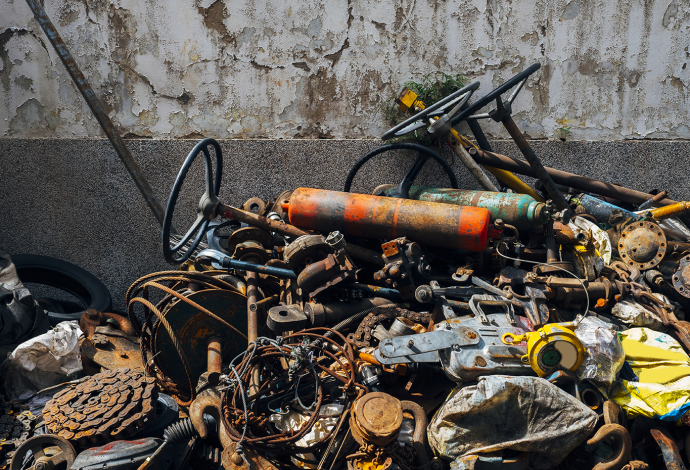There is No Such Thing as Disposal
The Oxford English Dictionary defines “disposal” as “the act of getting rid of something, often by throwing it away.” But in reality, nothing ever truly disappears. In waste management, disposal simply means transferring materials to another state or location. It’s a concept we urgently need to rethink, not just as a society, but as individuals, businesses, and educators.

A Culture of Waste
We live in a throwaway culture. From single-use packaging to fast fashion, society has normalised the idea that once something is no longer useful to us, it ceases to exist. It’s increasingly important to help future generations understand that everything they touch, use, or consume comes from the Earth. Even man-made objects are derived from natural materials that have been transformed through industrial processes.
The Illusion of Disappearance
When something is thrown away, it doesn’t vanish. Whether it ends up in landfill, incinerated, or scattered as microplastics in the ocean, the material remains in the environment. For example, burning a wooden pallet produces ash, gases, heat, and leftover nails. The process may change its physical form, but the materials continue to exist, and can still impact the planet.
The Cost of Disposing Materials
In a conventional linear system, materials are extracted, processed, used, and discarded. Each stage consumes energy, increases emissions, and depletes finite resources. Valuable materials like aluminium, copper, and other non-ferrous metals are often lost forever once consigned to landfill. Meanwhile, the cost of replacing them with virgin materials drives up operational expenses and environmental impact.
Even incineration isn’t a clean solution. While it may reduce the volume of waste, it creates emissions and residual by-products that must still be managed.
Rethinking Material Flows
If we are to create a more sustainable future, we must move away from the idea of disposal as a final step. Instead, we need to view all materials as resources with potential value. A more circular approach to recycling and resource recovery encourages:
- Recovering metals and other materials before they are lost
- Reducing contamination to preserve material quality
- Minimising dependency on primary resources
This mindset shift also opens up economic opportunities. Materials recovered through metal recycling can be reintroduced into manufacturing processes, extending their lifecycle and reducing demand for virgin extraction.
From Linear to Circular Economy
The linear model of “make, use, dispose” is no longer viable. In contrast, a circular economy keeps materials in use for as long as possible. It prioritises reuse, repair, and scrap metal recycling, helping to:
- Secure access to secondary raw materials
- Lower disposal costs and reduce long-term environmental impact
- Align with customer expectations and regulatory demands
Looking Ahead
Disposal is not an endpoint, it’s a transformation. What we throw away doesn’t vanish; it simply becomes someone else’s problem, somewhere else. By recovering and repurposing valuable materials, we reduce waste, lower emissions, and make more efficient use of the resources already in circulation.
BlakerTech’s Role
At BlakerTech, we support this transition through UK-made metal recycling equipment designed to recover non-ferrous metals and other high-value materials from mixed waste streams. Our systems help reduce the burden on landfill, support a sustainable circular economy, and enable operators to extract maximum value from every tonne of material they process.
If you’d like to learn more about our approach to sustainable resource recovery, please contact the BlakerTech team.

